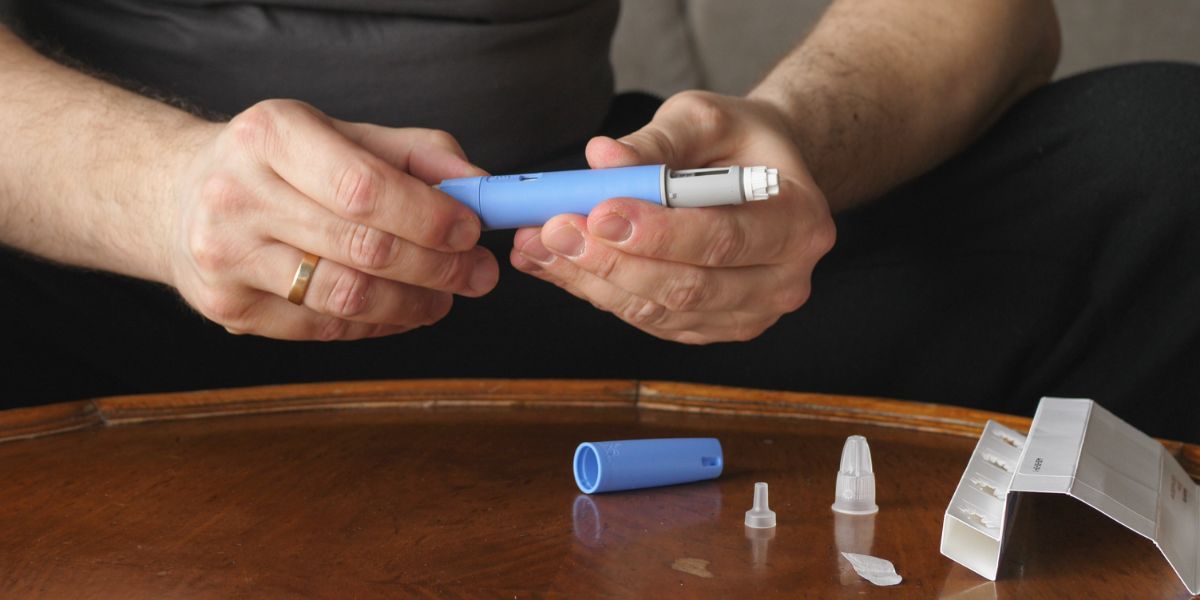Nutrition and health experts have warned that a new weight-loss injection now available on the NHS may not be the “game-changer” people are hoping for.
Semaglutide, sold under the brand name Wegovy, suppresses a person’s appetite and will be given to people with a BMI of 35 or more with at least one weight-related condition, such as type 2 diabetes.
The drug will also be offered to adults with a BMI between 30 and 35 if they have been referred for specialist help.
However, a number of experts have questioned how successful the jab will be, especially if it leads to people piling on the pounds again once they stop treatment.
Dr Adam Collins, an associate professor of nutrition at the University of Surrey, said: “The most concerning aspect of these therapies is their longevity. The drug is very effective when you are taking it, and so far, has been shown to take for several months.
“Yet the guidelines currently are that this is only advocated for use over two years. So, what happens when you come off of the drug? The answer is, your hunger will return in spades.
“With the shackles off your appetite, plus other changes…you are super primed to regain that lost weight.
“In this context, semaglutide is just another, albeit very effective, means of getting people to lose weight. But the trick is not losing weight, that is easy, it is maintaining that weight that is the true challenge. It remains to be seen how the emergence of this new class of drugs can be used to meet this challenge.”
His University of Surrey colleague, health psychologist Professor Jane Ogden, also commented, saying: “It’s no magic pill.”
Professor Jason Halford, from the School of Psychology at the University of Leeds, said that while semaglutide is “one of the most powerful pharmaceutical tools to date that we’ve had access to”, specialist weight management services must be used alongside the drug treatment.
He went on to say: “What we know when you come off the drug at two years, you see rapid weight gain because you’ve no longer got that drug-suppressing appetite systems.”
However, he added that should the data show that the treatment is safe for longer-term use, it could be used by those who find it difficult to maintain a healthy weight.
- Boots chemist to sell Wegovy weight loss jab from Spring
- Hair loss pill under investigation after reports of severe side effects
Results from drug trials show that people taking semaglutide lost about 12% of their body weight and cut their chances of developing type 2 diabetes in half. Yet one study showed that participants regained around two-thirds of the weight in the year after stopping the trial.
However, others have backed the availability of the treatment on the NHS.
Tam Fry, from the National Obesity Forum, said this is “the weight-loss drug that we’ve been waiting for”, adding: “The real danger is that there may not be enough to go round in the short-term. You should not be using it just to lose a few pounds because that might jeopardise the health of those who really need it, those who have diabetes type 2 and morbid obesity.”
Endocrinologist and obesity expert Professor Alex Miras, from Ulster University in Northern Ireland, said: “This decision made by NICE is a pivotal moment for the treatment of people living with obesity. The weight loss that can be achieved with this safe medication is substantial and likely to lead to the improvement of obesity related complications in a large number of patients.”
There are concerns about possible supply issues, as demand for semaglutide has exploded in the last year.
- Warning that Ozempic and Mounjaro can trigger accelerated aging
- Try the highest-rated weight loss app free
Novo Nordisk, the Danish pharmaceutical company behind the drug, has said it will ramp up supplies, but said demand has affected the supply of Ozempic, Wegovy’s sister drug.
A Novo Nordisk spokesperson said: “Wegovy hasn’t yet launched in the UK, therefore this is not in scope of the shortage in the UK.
“We’re working to address intermittent supply of Ozempic for people living with type 2 diabetes in the UK. This is due to unprecedented levels of demand which has tested our manufacturing capacity.”




